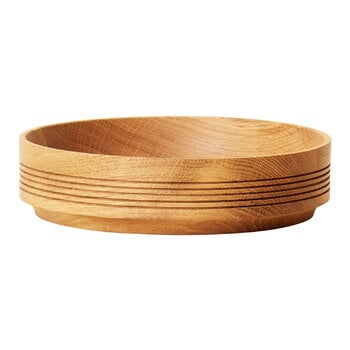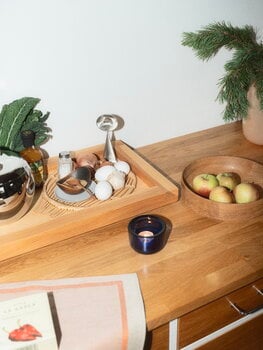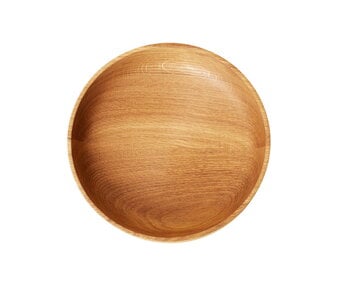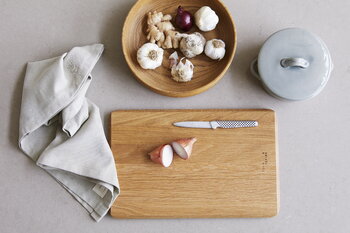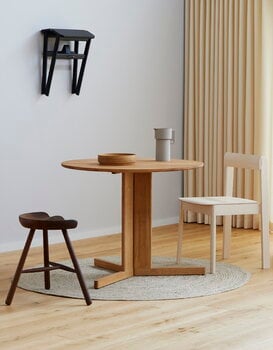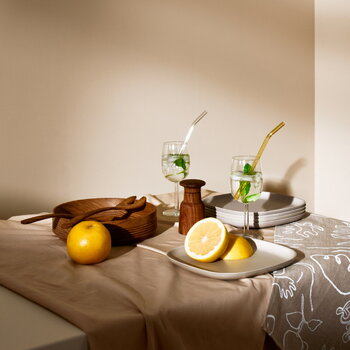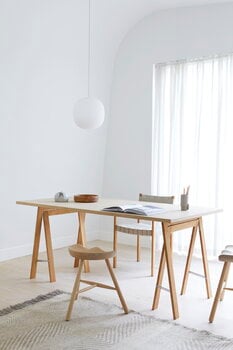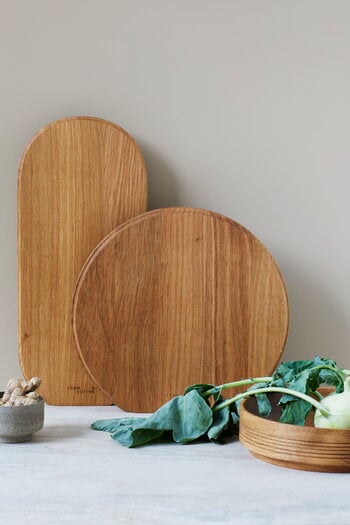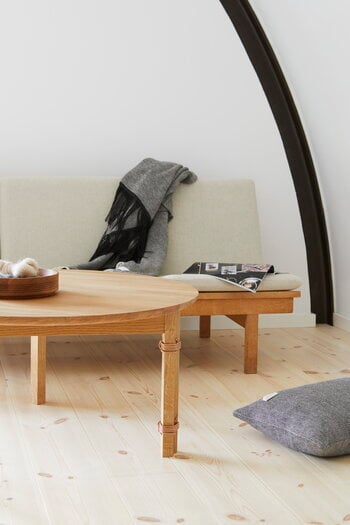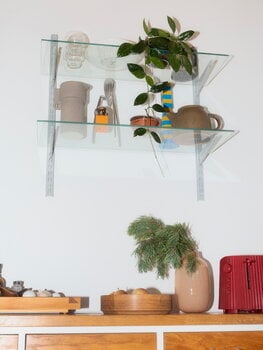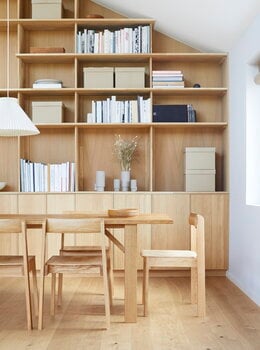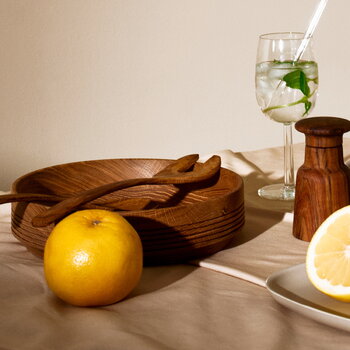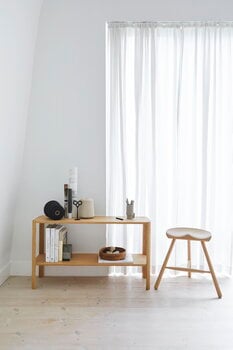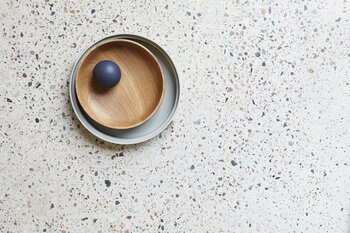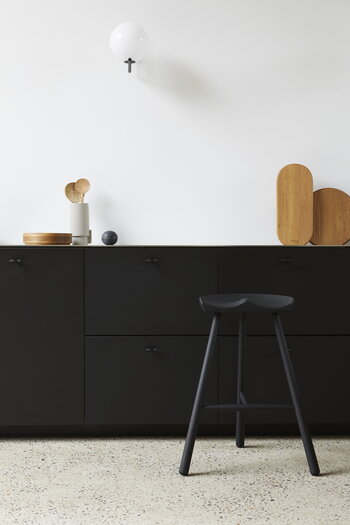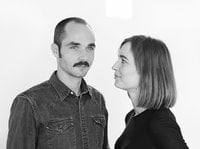The Section bowl by Form & Refine possesses a modest charm created by the natural beauty of the bowl’s material, oak, with the only decoration being the carved ring pattern on the bowl’s outer edge. Designed by Herman Studio, the Section bowl adds a beautifully minimalist Nordic touch to your dining table as a fruit bowl – or even to the rest of your home as a display and storage for all kinds of small items you might have lying around.
The bowl is made from wood offcuts that come mainly from the production of the Shoemaker Chair. Due to the grain pattern, each bowl is unique.
